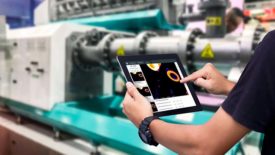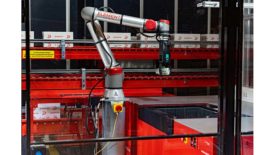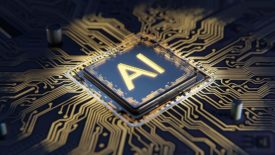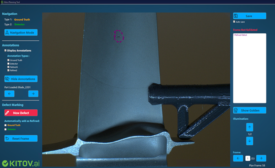Home » Artificial Intelligence (AI)
Articles Tagged with ''Artificial Intelligence (AI)''
Measurement
The integration of 3D CAD models and advanced software algorithms are setting new standards for accuracy and efficiency in manufacturing.
Read More
Vision & Sensors | Automation
What is Trustworthy AI for Quality Control?
Quality control in manufacturing relies on automation – and people.
April 30, 2024
Vision & Sensors | AI
Smart Support: Artificial Intelligence in Metrology
Optical measurement technology is far ahead of tactile technology when it comes to AI applications.
April 26, 2024
Aerospace Manufacturing
Smart Robot Automates Inspection of Helicopter Blades
New technology is more accurate and less labor-intensive than manual inspection.
April 2, 2024
Vision & Sensors | Vision
Integrated, Centrally-Managed Machine Vision for Built-In Quality
If we can bridge the confidence gap between underperforming legacy vision systems and manufacturers’ needs today, the rate of adoption is sure to grow exponentially.
April 2, 2024
Quality in Automation | Automation
Machine Vision Advancements Simplify, Improve Vision-Guided Robot Systems
3D Imaging, AI-Based Software, and Industrial Computing Democratize Application-Specific Automation Systems.
March 29, 2024
Quality in Automation | Artificial Intelligence
The Future of AI for Visual Inspection and Visual Quality Control in Electronics
With the rise of AI and the global restructuring of where goods are manufactured, leaders must devise a new strategy for visual quality control.
March 29, 2024
New Product
Kitov.ai Software Platform for Improved Automated Visual Inspections
March 18, 2024
Stay in the know with Quality’s comprehensive coverage of
the manufacturing and metrology industries.
eNewsletter | Website | eMagazine
JOIN TODAY!Copyright ©2024. All Rights Reserved BNP Media.
Design, CMS, Hosting & Web Development :: ePublishing








